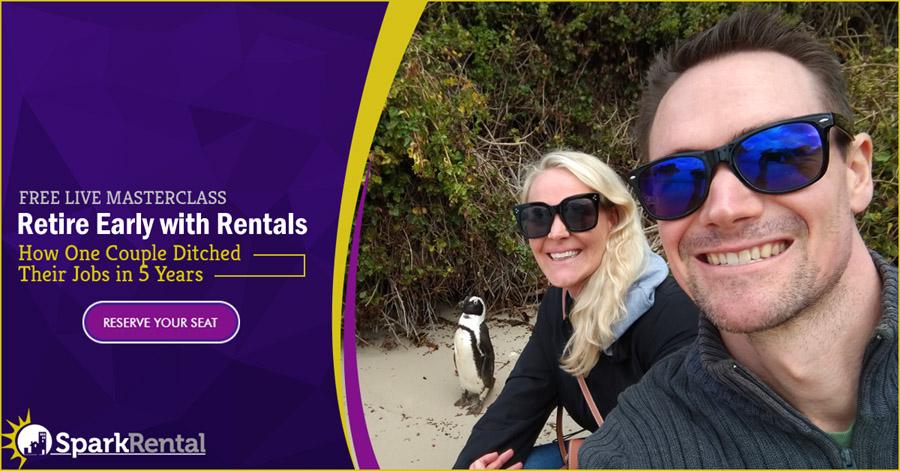
Could you live on half your current income?
Most people shake their heads and answer that it’s not possible. And yet there was probably a time when you did exactly that; you earned far less than you do today, and you managed to survive just fine.
So what happened in the intervening years? Enter: lifestyle creep.
The Insidious, Subtle Danger of Lifestyle Creep
Think of the last time you got a raise. The first thing you did was go out and celebrate with your partner or friends or family (spending a hefty amount in the process).
Then you either started looking for a nicer home or a fancier car. Or both.
People tend to spend nearly all of what they earn – no matter how much that is. If they earn $30,000 a year, they spend nearly $30,000. The same happens at $60,000, at $120,000, at $240,000; when you get a raise, that quickly becomes the new normal in your mind.
And you spend accordingly.
It’s called lifestyle creep, or lifestyle inflation, and it happens with little conscious thought on your part. That’s what makes it so dangerous: you simply start spending more, without planning it intentionally. You see your friends living a more lavish lifestyle with every year that goes by, and you start trying to “keep up with the Joneses.”
Yet one of the easiest ways to maximize your savings rate is by simply freezing your spending budget and avoiding lifestyle creep. When you get a $10,000 raise, you don’t move into a more expensive apartment. You stay where you are, and put an extra $10,000/year toward investments. Investments that generate even more income.
Savings Rate: The Key to Financial Independence
One of the fundamentals of financial independence and retiring early (FIRE) is maximizing your savings rate, or the percentage of your income that goes toward savings and investments. The higher your savings rate, the faster you build wealth. (See our free FIRE calculator to run your own numbers for financial independence and retiring early.)
An easy enough concept, but not so easy to implement.
Most people already aim to maximize their income, through pursuing ongoing education and raises, exploring new jobs or careers, or starting a side hustle (such as, say, buying your first rental property). Formal education helps; according to Social Security data, the average high school graduate earns $1.2 million over their lifetimes while college graduates earn almost $1 million more ($2.2 million).
The problem is that most people succumb to lifestyle creep as soon as they increase their income. They want to live as luxuriously as possible, keeping up with the Joneses and spending money to feel wealthy rather than saving money to grow wealthy.
So as helpful as earning more income is in building wealth, it’s only half the battle. The true test for most of us is in keeping our spending in check.
How to Avoid Lifestyle Inflation
The first step to avoiding lifestyle creep is simply making a commitment to your current budget. In your mind, lock your current living expenses as a ceiling, not a floor. You can (and ideally should) spend less, but you can’t spend more – even when you start earning more.
When that raise or side hustle income does arrive, funnel every penny of it into savings and investments. No excuses, no exceptions, just a commitment that you honor.
Ideally, that’s the end of the discussion for you. But if you know that you’ll have trouble with not spending more as you earn more, here are a few additional ideas.
Automate the Savings with Your Employer
Talk to your employer’s HR department about splitting your paycheck. That could mean part of your paycheck going into your company’s 401(k) or SIMPLE IRA plan. Or, if your employer doesn’t offer a retirement plan, you could ask them to split your direct deposit to go into two accounts: your regular checking account, and your brokerage account or savings account.
The important part? All raises must be added directly to savings portion of your paycheck, not the checking account portion for living expenses.
If your employer can’t do that, ask them to split the deposit based on a fixed percentage of income.
Keep Your Savings Rate Fixed
You may not be able to resist the temptation of lifestyle creep entirely. But you can at least fix your savings rate, so the same percentage of your income goes to investments.
If you earn $4,000 per month and save 25% of your paycheck ($1,000/month), then get a raise to $6,000, your savings should rise to at least $1,500 to keep your 25% savings rate unchanged. It still lets you live larger, but at least you save more money, too.
(article continues below)
Free Masterclass: How to Reach Financial Independence in Under 5 Years
Reducing Expenses
Ready to start saving more money now, and not wait for a raise or extra side hustle income?
Cutting expenses is the easiest way to boost your savings rate immediately, kick-starting you on the road to your goals.
The extent of cost-cutting measures varies by individuals. Some prefer a modest approach, freezing the level of their current expenditures and diverting any extra income to savings (preventing lifestyle creep). Others make small changes in their lifestyle initially, and gradually cut more expenses over time. And a few aggressive investors pursuing FIRE make radical changes in their lifestyles to maximize savings, taking measures that you might consider extreme to increase savings.
Here are a few ideas to reduce your living expenses, avoid lifestyle inflation, and maximize your savings rate.
Live for Free by House Hacking
Housing is the largest living expense for most of us. For many Americans, it eats up 30%, 40%, or even 50% of their income.
About two-thirds of Americans own homes, the first home purchased at age 32 for an average cost of $190,000. About one-third of those buying their first home will stay in it, the other homeowners relocating every fifteen years. Homeowners quickly learn that the cost of a house far exceeds its purchase price. A thirty-year 4.5% mortgage on a $190,000 requires a monthly payment of $935 or $336,600 over the lifetime of the loan. Annual property taxes (3% of appraised value) and home insurance add $700 to the monthly payment, while routine maintenance and repairs cost several thousand dollars each year, to say nothing of the costs of furnishings.
Our own Deni Supplee used house hacking suburban homes new fewer than four different ways, to get free housing. Tim Puffer house hacked a duplex, to score free housing that way.
Find a way to have someone else cover some or all of your housing expenses, and watch your savings rate skyrocket.
Get Rid of a Car
The average car costs nearly $9,300 per year to own and maintain, between the car payment itself, insurance, fuel, repairs and maintenance, parking, and other expenses.
Look for housing where you can get around by walking, biking, public transportation, ride sharing such as Uber, or car sharing such as ZipCar. If you and your partner or roommate can share a car, or better yet, get rid of all cars, you can wipe thousands of dollars off your annual expenses in one move.
Find Ways to Save on Child-Related Expenses
According to the U.S. Department of Agriculture, the cost of raising a single child to age 17 in a two-parent, middle-income family was $233,610 in 2017. Fortunately, additional children use the same bedroom, hand-me-downs are typical, and older children babysit their siblings, saving the cost of childcare.
It’s all too easy to overspend on children, and tell yourself you’re sacrificing “for your children’s benefit.” But the best gift you can give your children is teaching them personal finance and entrepreneurship – and making sure you invest enough for your own retirement, so you don’t become a burden to them later in life.
That includes higher education expenses. Seventy percent of parents plan to pay some or all of the children’s college costs, estimated at $21,960 annually for a public in-state university and almost $50,000 per year at the average four-year private college. Try these creative ways to pay for college, as your plan your investments.
(article continues below)
Healthcare
Medical costs are likely to continue to rise. In 2018, a family of four averaged a health insurance expense of $28,166. Employees covered 44% of the total through employee payroll deductions and out-of-pocket expenses. While the government and industry are working to lower costs, significant reductions are not likely. Healthcare costs during retirement are especially onerous; the average couple is paying almost $390,000 for care during their “golden” years.
And it gets even scarier for early retirees who don’t get health insurance through an employer. Check out these options for health insurance for early retirees, to help find the best coverage at the lowest rates.
Stop Comparing Yourself & Keeping Up with the Joneses
No one wants to feel like “the poor one” in their family or group of friends. Our efforts to fit in and look successful result in extreme, even ridiculous, behavior as satirized in the famous 1913 comic strip “Keeping Up with the Joneses.”
It only gets worse with time, too. As your friends start earning more, they keep spending more, running place on the financial treadmill. But from the outside, all you see are the fashionable clothes, sleek car, enormous house. Avoiding lifestyle creep when your friends are rich is extremely difficult!
Forget all that. Your friends and coworkers living in that fancy house and driving that upscale car? They’ll still be working in 20 years from now to afford their luxurious lifestyle.
You won’t.
And while you’re at it, stop succumbing to the notion of “deserved indulgence.” Advertisers promote the idea that working full time entitles one to a luxurious lifestyle: “You work hard, you’ve earned this.” American society expects tangible evidence of success. Ownership of exotic cars, tailored suits, designer shoes, and first-class travel are not a right, but an obligation, of high income.
Budget for the Unexpected in Your Emergency Fund
Other events, while uncertain and not choices, also impact your income, expenses, and assets positively or negatively. These include divorce, remarriages, deaths, inheritances, major illnesses or accidents requiring hospitalization, job losses, promotions, legal claims, and natural disasters.
Unexpected expenses pop up every single year. Last year, it was a big medical expense. This year, it’s the new furnace. Next year, it will be something else.
It’s why everyone needs an emergency fund. And it’s why you need to budget for irregular expenses when you calculate rental property cash flow, too.
Sadly, most of us do not recognize how the choices we make about our families, companions, environment, and culture complicates our ability to save. Controlling your appetite for luxuries and comforts in the short-term leads to financial security long-term.
Final Word
Whether your goal is to win a battle, bake a cake, or build financial security, having and implementing a plan is essential. French writer and journalist Antoine de Saint-Exupéry said it best, “A goal without a plan is just a wish.” While success is never a given, implementing the following principles in your lifestyle will increase the odds of achieving financial independence in your favor.
Younger Americans, particularly Millennials and Generation Z, have begun to question the values of their parents should apply to them. They reject the notion that long hours, time away from family, and constant pressure to excel are necessary trade-offs for a better quality of life. The desires for more leisure time and more control of their lives and environment are the impetus for the growing FIRE movement, and the more you separate the notions of spending and quality of life, the happier you’ll be as you avoid lifestyle creep and build wealth with a high savings rate.
Would you make a radical change in your lifestyle to secure financial freedom? Are you a person who can live outside society’s norms, marching to the beat of your own drummer? Is time or money more valuable to you?
More Unconventional Reads:
About the Author:

Michael Lewis is a landlord, entrepreneur, and personal finance expert. He reached financial independence and semi-retired, but loves writing and helping others build wealth – so he keeps doing it! Connect with him at MichaelRLewis.org to talk entrepreneurship, writing, or building wealth one brick at a time.



























Money helps us in so many ways, the problem is, it can be challenging to find a balance. Some things are a great benefit and I would never regret it, like doing activities with my children (some of which cost money) to enjoy some great quality time together, but like i said, there needs to be a balance. This article has some really great points and ideas. There are so many ways to keep from ‘lifestyle creep,” while still enjoying yourself. My husband and I definitely get caught up when we get some extra money sometimes, it can be hard to get over that excitement but we will thank ourselves for saving and investing in the future.
No question Joan, and I’m all about experiences too, rather than “stuff”!
My family and I work hard to save and invest but we also enjoy quality time together doing things together like visiting the aquarium or taking a small vacation. I wouldn’t trade those moments for the world, they are worth the money. Done in moderation, i believe you can have the best of both worlds.
You absolutely can Martha! All about prioritization. You can have anything, but you can’t have everything.
Just wanted to add: Social media influence is a lifestyle creep! People have to mind their own business and stop comparing your selfies to the joneses!
Agreed Von!